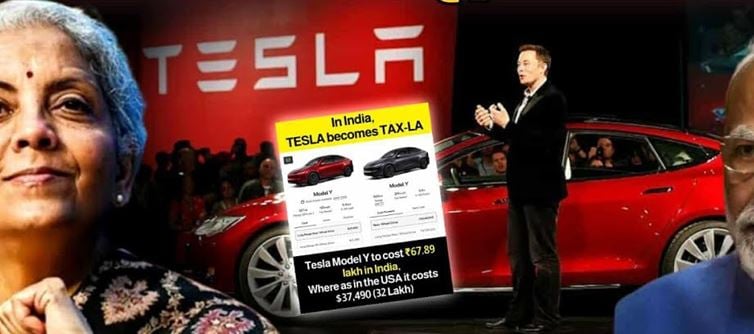
This sharp difference isn’t due to the base cost of the vehicle but is primarily the result of India’s steep import duties. The indian government imposes a hefty 70%–100% tax on fully built imported vehicles (CBUs), which dramatically inflates the final price for indian consumers. Add to this the cost of shipping, handling, and other levies, and the Model Y becomes a luxury purchase, inaccessible to most of the middle class in India.
The pricing in china and the US remains relatively low due to local manufacturing and more favorable tax environments. tesla has a Gigafactory in Shanghai, allowing it to build and sell its vehicles within china at reduced costs. Similarly, tesla manufactures its cars in the US, benefiting from domestic production, minimal import barriers, and government incentives for electric vehicles. In contrast, india currently does not have any tesla manufacturing facilities, meaning all units must be imported. Without a local supply chain, tesla cannot benefit from economies of scale or tax breaks that come with "Make in India" policies, keeping its cars priced out of reach for the broader indian market.
However, things could change dramatically if tesla proceeds with its local manufacturing plans in India. industry reports suggest that the indian government is considering a policy shift, offering duty exemptions and incentives if tesla commits to building a plant within the country. If such a deal materializes, the price of the Model Y could drop significantly, potentially to ₹35–40 lakh, bringing it in line with international pricing. This move could make tesla a real contender in India’s growing electric vehicle market. The outcome now rests on the final negotiations between tesla and the indian government, but one thing is clear—local production is key to making tesla affordable and accessible for indian consumers.




 click and follow Indiaherald WhatsApp channel
click and follow Indiaherald WhatsApp channel